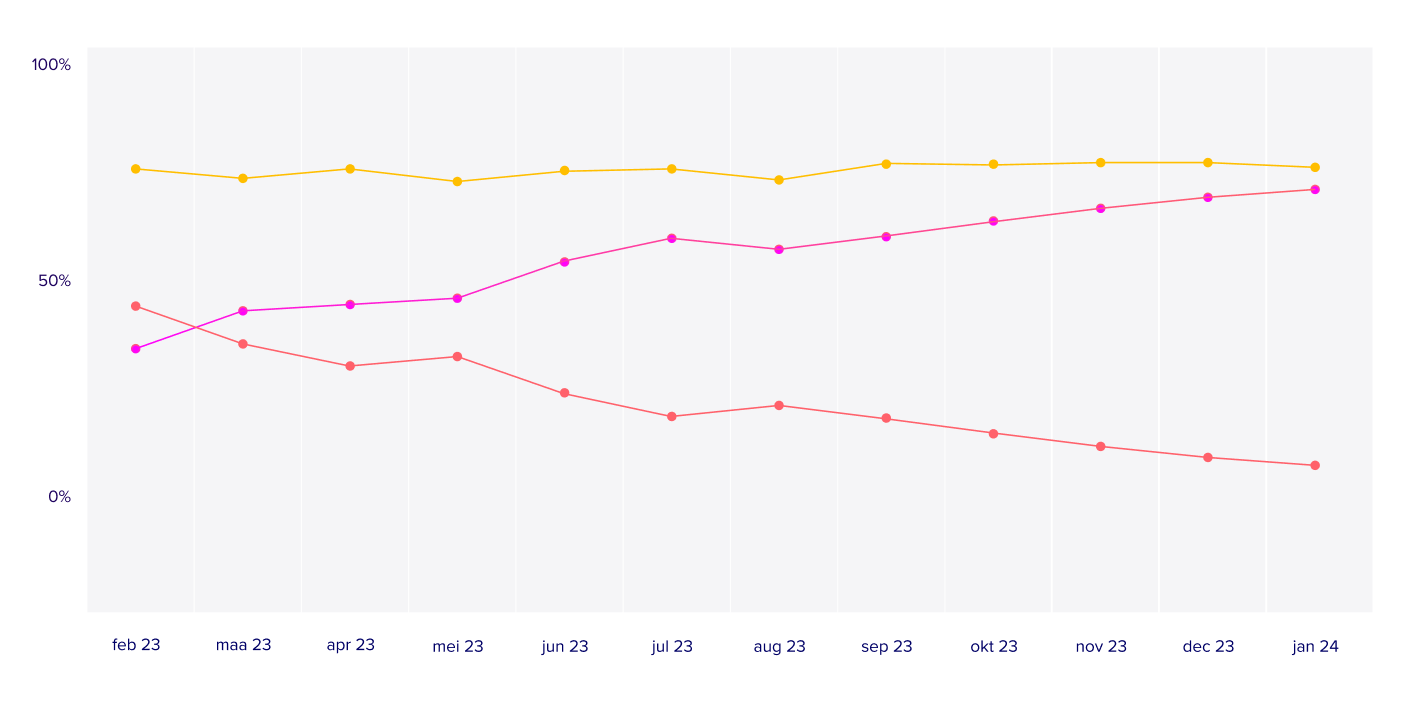In 2015, Jildert and his team at Randstad worked on a revolutionary matching algorithm. They were convinced they held the future of recruitment in their hands. The results were indeed astonishing: candidates and vacancies were matched with unprecedented precision based on skills ontology. But there was a catch. The algorithm was based on historical data, and that data turned out to be far from unbiased.
The algorithm adopted the patterns from the past, including the biases that lay dormant within them. As a result, certain groups of candidates were systematically disadvantaged. Women, people with a migration background, older applicants – they simply received fewer opportunities. Jildert and his team had created a powerful tool, but it was a tool that unintentionally facilitated discrimination.
.jpg)
A lesson in biased AI

The Rise of Responsible AI and the ISO 42001 Certification
Fortunately, times have changed. Today, there is a growing awareness of the importance of responsible AI. European leaders such as 365Talents and TechWolf have taken the lead and obtained the ISO 42001 certification. This certification is a milestone in the development of ethical and reliable AI systems.
What does the ISO 42001 certification entail?
In essence, the ISO 42001 certification guarantees that AI systems are developed and used in an ethical, transparent, and reliable manner. It helps organizations to:
- Manage risks: Think of preventing discrimination, protecting privacy, and ensuring safety.
- Seize opportunities: AI can be a powerful engine for innovation and growth, provided it is used responsibly.
- Build trust: By demonstrating that you take AI seriously, you gain the trust of employees, customers, and society as a whole.
The ISO 42001 standard provides a framework for the entire AI development process, from the initial design phase to implementation and management. It is a compass that helps organizations navigate the complex landscape of AI.
Why Responsible AI is Important
The importance of responsible AI cannot be overstated. In a world where AI is increasingly influencing our daily lives, it is essential that we maintain control. We must ensure that AI systems reflect our values and ethical principles.
Responsible AI is not only about preventing harm, but also about creating opportunities. By using AI ethically, we can contribute to a fairer and more inclusive society.
The Future of AI
Developments in the field of AI are happening rapidly. It is therefore important that organizations continue to inform themselves and adapt to the latest insights and standards. The ISO 42001 certification is a valuable tool in this process.
If you would like to know more about ISO 42001 and how to apply it in your organization, please do not hesitate to contact us. Together we can ensure that AI becomes a force for good.
